Happiness Resources
If you are interested in exploring happiness through multiple sources then this is the space for you. We have collected information from different sources available on the web and got them at one place for you to explore. The idea is to help you explore these elements so that you become curious about happiness and become a lifelong learner (Do remember, we have just got this stuff for your consumption & we don’t have any relation with the data/people presented here)

Philosophers
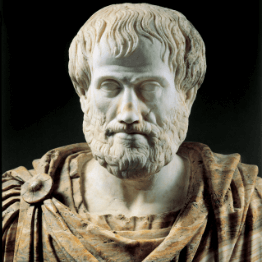
Aristotle
Aristotle
Aristotle was a Greek philosopher and polymath during the Classical period in Ancient Greece. Taught by Plato, he was the founder of the Lyceum, the Peripatetic school of philosophy, and the Aristotelian tradition. Aristotle’s concept of happiness consists of achieving, through the course of a whole lifetime, all the goods — health, wealth, knowledge, friends, etc. — that lead to the perfection of human nature and the enrichment of human life. This requires us to make choices, some of which may be very difficult.
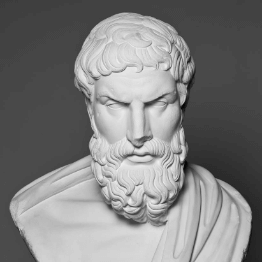
Epicurus
Epicurus
Epicurus was an ancient Greek philosopher and sage who founded Epicureanism, a highly influential school of philosophy. He regarded the unacknowledged fear of death and punishment as the primary cause of anxiety among human beings, and anxiety in turn as the source of extreme and irrational desires. The elimination of the fears and corresponding desires would leave people free to pursue the pleasures, both physical and mental, to which they are naturally drawn, and to enjoy the peace of mind that is consequent upon their regularly expected and achieved satisfaction.
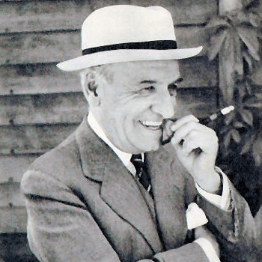
Jose Ortega y Gasset
Jose Ortega y Gasset
Through his book, Man and people, Ortega y Gasset explains the differences between biological life and biographical existence. While the former is obvious, the latter signifies an existential category that lies outside the realm of science. We do not experience the interior reality of our lives by being convinced by abstractions but through the essence of personhood. This is one reason why we can say that joy and happiness are interrelated modes of being.
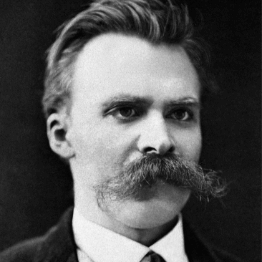
Nietzsche
Nietzsche
Nietzsche was a German philosopher, essayist, and cultural critic. His writings on truth, morality, language, aesthetics, cultural theory, history, nihilism, power, consciousness, and the meaning of existence have exerted an enormous influence on Western philosophy and intellectual history. In his work, The Antichrist, he defines the idea of Happiness as-‘What is happiness? The feeling that power is growing, that resistance is overcome.’

Buddha
Buddha
“Buddha means- one who is awake.” The Buddha who lived 2,600 years ago was not a god. He was an ordinary person, named Siddhartha Gautama, whose profound insights inspired the world. Buddhism pursues happiness by using knowledge and practice to achieve mental equanimity. In Buddhism, equanimity, or peace of mind, is achieved by detaching oneself from the cycle of craving that produces dukkha.
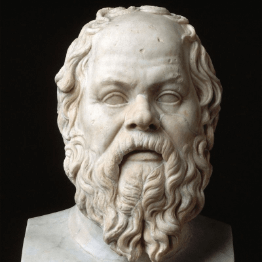
Socrates
Socrates
Socrates was a Greek philosopher from Athens who is credited as one of the founders of Western philosophy, and as being the first moral philosopher of the Western ethical tradition of thought. Socrates believed that only people with self-knowledge could find true happiness. Happiness flows not from physical or external conditions, such as bodily pleasures or wealth and power, but from living a life that’s right for your soul, your deepest good.
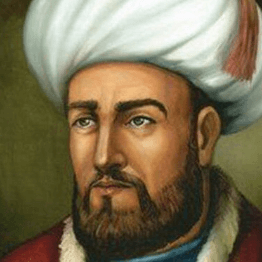
Al-ghazali
Al-ghazali
Al-Ghazâlî (c.1056–1111) was one of the most prominent and influential philosophers, theologians, jurists, and mystics of Sunni Islam. In his work, the Alchemy of Happiness, al-Ghazali explains that “He who knows himself is truly happy.” Self-knowledge consists in realizing that we have a spirit that is perfect, but which has been covered with dust by the accumulation of passions derived from the body and its animal nature.
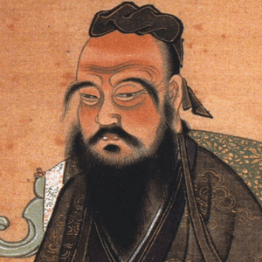
Confucius
Confucius
Confucius was an influential Chinese philosopher – who taught a philosophy of correct behaviour, social interaction and kindness towards others. During his lifetime, he sought to educate his fellow citizens on principles of justice, service and personal integrity. After his death, his precepts and philosophy became the cornerstone of Chinese culture and philosophy – widely known as Confucianism.
Happiness consists primarily not in pleasure, but in ethical pleasure; the good life is not a life in which all or most of one’s desires are fulfilled, but a life in which the satisfaction of prudential desires is subject to the constraint of ethical desire; the source of the greatest happiness lies not in the attainment of the greatest political power, but rather in the cognizance of one’s moral innocence.
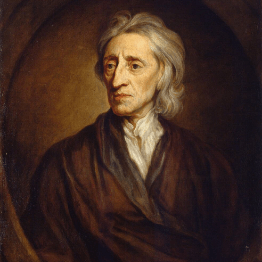
John Locke
John Locke
The father of liberalism and one of the most influential Enlightenment thinkers, Locke distinguishes the happiness that is acquired as a result of the satisfaction of any particular desire and the true happiness that is the result of the satisfaction of a particular kind of desire. The pursuit of true happiness is equated with “the highest perfection of intellectual nature”, and Locke takes our pursuit of this true happiness to be the thing to which the vast majority of our efforts should be oriented.
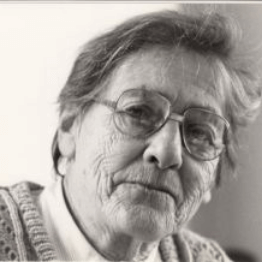
Marie Jahoda
Marie Jahoda
Marie Jahoda was an Austrian-British social psychologist. She suggested that 6 criteria needed to be fulfilled for ideal mental health (normality). The six criteria were a positive attitude towards the self, self-actualisation, autonomy, resistance to stress, environmental mastery and an accurate perception of reality.
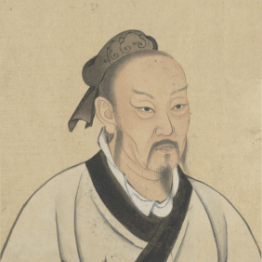
Mencius
Mencius
Mencius was a Confucian disciple who made major contributions to the humanism of Confucian thought. Mencius declared that man was by nature good. He postulated the idea that a ruler could not govern without the people’s tacit consent and that the penalty for unpopular, despotic rule was the loss of the “mandate of heaven”. Mencius was an idealist who emphasized justice and humanity; proposed the idea of popular rule, and is credited with articulating the famous “mandate of heaven” ideology.
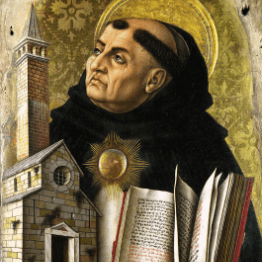
Thomas Aquinas
Thomas Aquinas
Thomas Aquinas was an Italian Dominican friar, philosopher, Catholic priest, and Doctor of the Church. An immensely influential philosopher, theologian, and jurist in the tradition of scholasticism, he is also known within the latter as the Doctor Angelicus and the Doctor Communis.
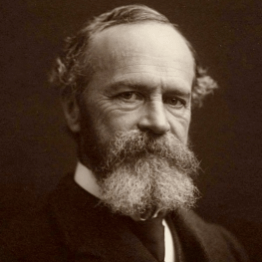
William James
William James
Also known as the father of American Psychology, James is considered to be a leading thinker of the late nineteenth century, one of the most influential philosophers of the United States. EMAIL Happiness as explained by William James is reflected in the ratio of one’s accomplishments to one’s aspirations. This suggests, of course, that when it comes to feeling happy in our lives, we can choose one of two paths: continually add to our list of accomplishments or lower our expectations.
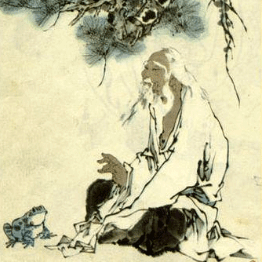
Zhuangzi
Zhuangzi
Zhuang Zhou, commonly known as Zhuangzi, was an influential Chinese philosopher who lived around the 4th century BC during the Warring States period, a period corresponding to the summit of Chinese philosophy, the Hundred Schools of Thought. Zhuangzi’s claim that “The perfect happiness is derived from the absence of happiness” designates two key arguments:
(1) Happiness cannot be designed and measured, and
(2) There is no single fixed notion of happiness and meaning-making
Leaders

Gretchen Rubin
Gretchen Rubin
– Gretchen Rubin
She is a five-time New York Times bestselling author, podcaster, and speaker, creator of the Four Tendencies framework, exploring happiness and good habits.
https://gretchenrubin.com/
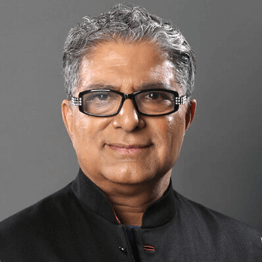
Deepak Chopra
Deepak Chopra
– Deepak Chopra
He is an Indian-American author and alternative-medicine advocate. A prominent figure in the New Age movement, his books and videos have made him one of the best-known and wealthiest figures in alternative medicine.
https://www.deepakchopra.com/

Barbara Fredikscon
Barbara Fredikscon
– Barbara Fredikscon
She is an American professor in the department of psychology at the University of North Carolina at Chapel Hill, where she is the Kenan Distinguished Professor of Psychology.
http://www.positivityratio.com/
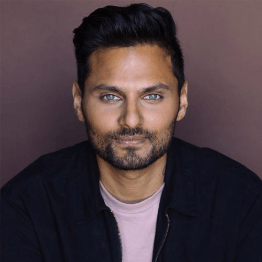
Jay Shetty
Jay Shetty
– Jay Shetty
He is a British author, former monk, and purpose coach. As the host of the podcast On Purpose, his guests have included Alicia Keys, Khloe Kardashian, and Kobe Bryant, resulting in 64 million downloads.
https://jayshetty.me/
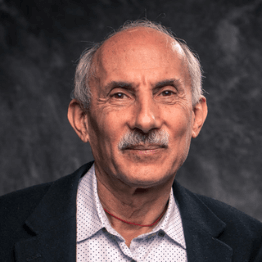
Jack Cornfield
Jack Cornfield
– Jack Cornfield
He is a bestselling American author and teacher in the vipassana movement in American Theravada Buddhism. He trained as a Buddhist monk in Thailand, Burma and India, first as a student of the Thai forest master Ajahn Chah and Mahasi Sayadaw of Burma.
https://jackkornfield.com/
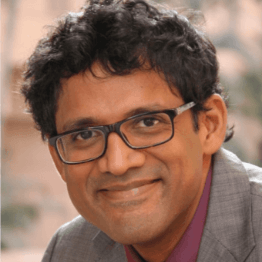
Raj Raghunathan
Raj Raghunathan
– Raj Raghunathan
He earned his PhD from the Stern School of Business at New York University and is currently employed as a professor of marketing at the McCombs School of Business, the University of Texas at Austin.
https://www.happysmarts.com/
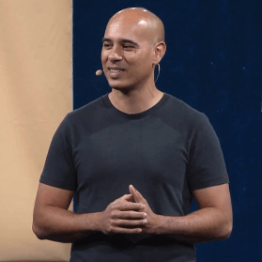
Leo Babuta
Leo Babuta
– Leo Babauta
Zen Habits is a blog written by Leo Babauta about implementing zen habits in daily life. It offers suggestions for how to live and also includes frequent references to how Leo Babauta has implemented these habits.
https://zenhabits.net/

Melaine Weinberger
Melaine Weinberger
– Melaine Weinberger
She is a life coach who works with men and women to help bring more joy into their lives. Her mission is to connect with the community and enable an uplifted life experience, not based on your outer achievements, but rather, your inner ability to choose your experience.
https://www.melanieweinberger.com/aboutmelanieweinberger
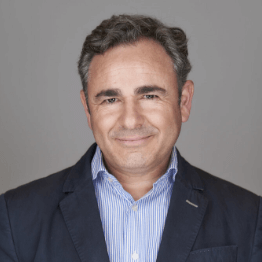
Luis Gallardo
Luis Gallardo
– Luis Gallardo
He is a global brand and marketing leader and expert in the areas of strategic brand management, brand engagement, brand expression, marketing, communications, business development, and reputation management.
https://www.teohlab.com/

Nataly Kogan
Nataly Kogan
– Nataly Kogan
She is a former writer for Verywell Mind, covering happiness. She is the co-founder and CEO of Happier, a leading wellness company on a mission to make millions of people happier by helping them find, create, and celebrate more small awesome moments in their daily lives.
https://www.happier.com/

Sonja Luymborski
Sonja Luymborski
She is a social psychologist at the University of California, Riverside and author of The How of Happiness.
http://sonjalyubomirsky.com/

Tasha Eurich
Tasha Eurich
– Tasha Eurich
She is an organizational psychologist, executive coach, researcher, and New York Times, best-selling author. Her mission in life is to help people become the best of who they are and what they do.
https://www.tashaeurich.com/
Books

Animal Farm
George Orwell
Animal Farm
Animal Farm is set in a farmyard where the animals decide to seize the farmer’s land and create a co-operative that reaps the benefits of their combined labors. However, some animals see a bigger share of the rewards than others, and the animals start to question their supposed utopia. The story is simple, moving and enlightening as it clearly shows humankind at its best and very worst.

Becoming Michelle Obama
Michelle Obama
Becoming Michelle Obama
It is a warm, intimate coming-of-age story of a strong-minded girl who grew up to become one of the most powerful and influential black women in the country. It is filled with determination, love of family and many subtle and not-so-subtle lessons about being female, black, and black and female in America.
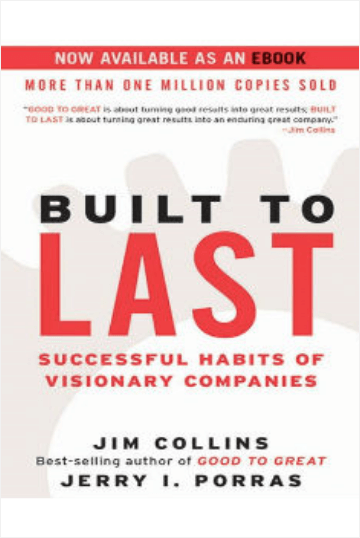
Build to Last
James C. Collins and Jerry I. Porras
Build to Last
It examines what lies behind the extraordinary success of 18 visionary companies and which principles and ideas they’ve used to thrive for a century. This book is a classic and an incredible effort went into this book which we can see by the presence of the countless examples.

Girlboss
Sophia Amoruso
Girlboss
The book shows that even an unconventional life can lead to success when you discover your passions and improve your skills in unusual and unpredictable ways. It is inspiring for both those who stuck to those rules and those who didn’t. Whatever your choices, remember that you can learn from any experience and support yourself with your passions.
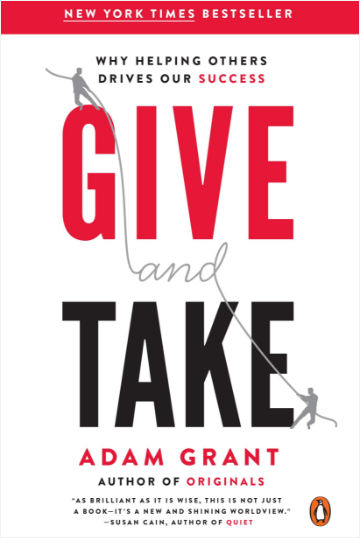
Give and Take
Adam Grant
Give and Take
People generally fit into one of three styles. Either they are givers or takers or matchers, but which do you think tends to be the most successful? People will admit that takers are the more successful one but the author argues givers are actually the most successful. In the book, you will learn how givers build larger, more supportive networks; inspire the most creativity from their colleagues; and achieve the most successful negotiations.
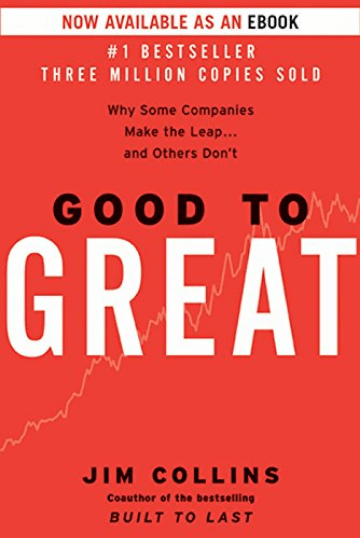
Good to Great
James C. Collin
Good to Great
The author sets off a riveting journey explaining the findings from his and his team’s half a decade of research in the conquest of how to make good companies great. It shows us that great companies did not emerge due to a dramatic or a revolutionary event but rather years or decades of adhering to their core tenets and building up in the process.
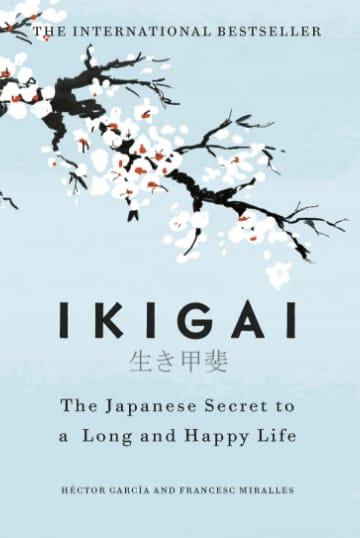
Ikigai
Albert Liebermann and Hector Garcia
Ikigai
The book touches on the various aspects of life which can help us achieve a long happy life. It is based on an ancient, well practiced Japanese technique called — IKIGAI which means a reason to jump out of bed each morning! It is extremely inspiring and full of content.
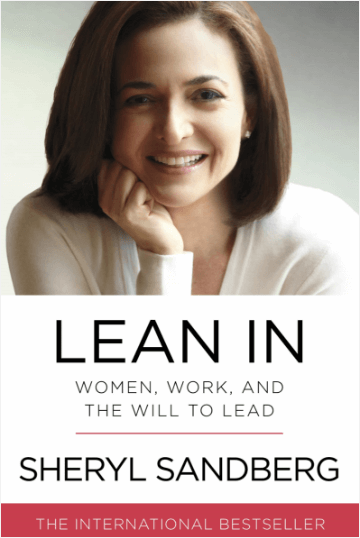
Lean In
Sheryl Sandberg
Lean In
The book is to encourage an individual to dream big, forge a path through obstacles and achieve their potential. Life happens and tomorrow life might just force you to Lean back. And that’s OK.
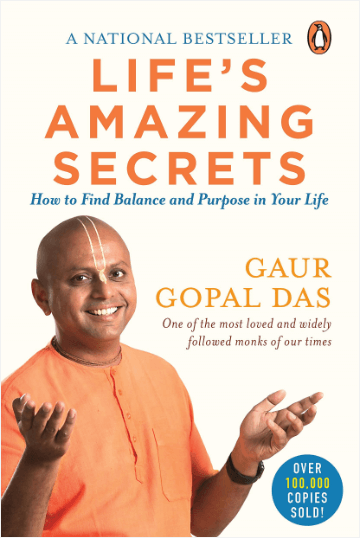
Life's Amazing Secrets
Gaur Gopal Das
Life's Amazing Secrets
This book is filled with precious insights and examples on how to live a balanced life with purpose. Every chapter starts with a beautiful quote by legendary people and ends with a summary of the chapter. Overall, you can pick it up anytime you feel low or out of balance. It’s written beautifully and presented well.
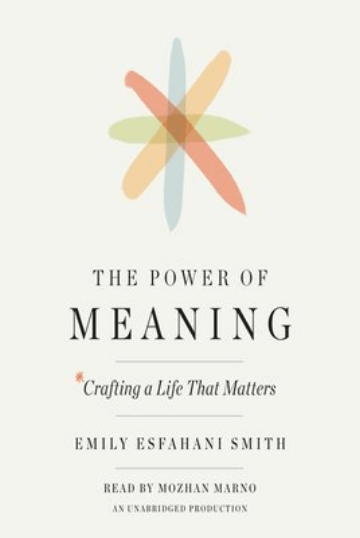
The Power of Meaning
Emily Esfahani Smith
The Power of Meaning
Meaning makes life worth living through belonging, purpose, storytelling, transcendence. It is a book that explores what is it that makes life worth living. This is a complicated question and people have been trying to answer it for centuries, if not since the beginning of time.
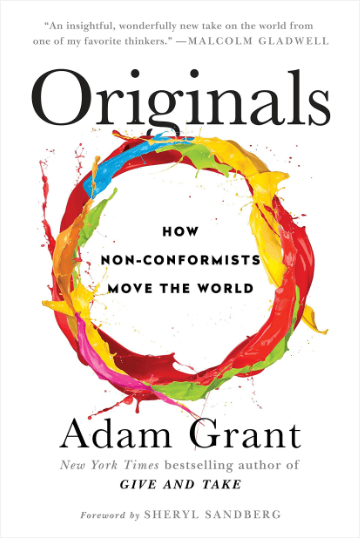
Originals
Adam Grant
Originals
For anyone interested in building a meaningful career or looking to harness their inner creativity (hopefully all of you), this is a must-read! The magic of this book is that it can be read through many lenses. Creativity is at the centre of almost all work in today’s world. After reading this, it is now probably in the top 3 books for anyone serious about being a great leader/manager in an organization.
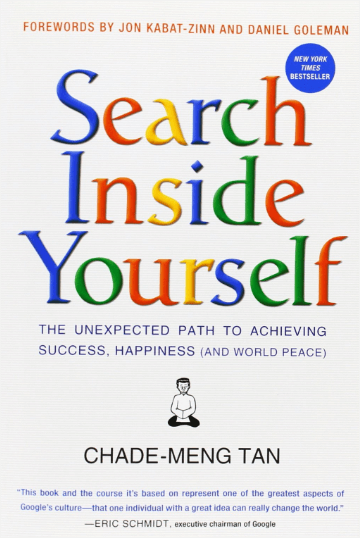
Search Inside Yourself
Chade Meng Tan
Search Inside Yourself
The book adapts the ancient ethos of “knowing thyself” to the realities of a modern, fast-paced workplace by introducing mindfulness exercises to enhance emotional intelligence. It is a practical guide on how to manage yourself at work – as well as how to create a better working culture of tomorrow.

1987
Sebastian Jones
1987
987 is a book of poetry. It captures the essence of growing up in an urban community. The stories paint pictures of inner youth. 1987 is a diary feel poetry book, from the point of view of a 16-year-old black male.
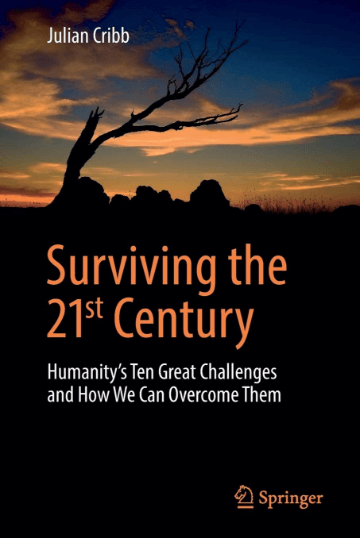
Surviving the 21st Century
Julian Cribb
Surviving the 21st Century
Each chapter herein considers a great challenge, including mass extinction, resource depletion, climate change, food crises, population and urban expansion, pandemic disease, dangerous new technologies, and self-delusion. This book comprehensively addresses all the main threats to us and our planet and offers a holistic approach that gives more hope to tackle problems individually.
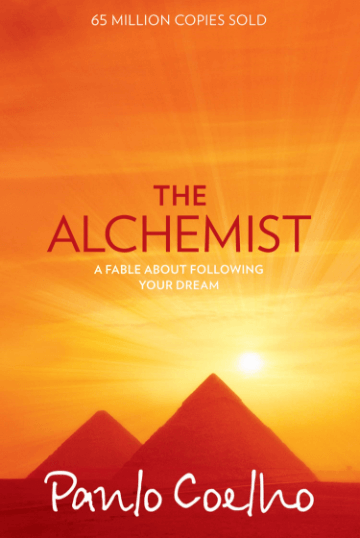
The Alchemist
Paulo Coelho
The Alchemist
Alchemist means a person who has magical power and techniques to change anything into gold. Basically, the main idea which the author wants to deliver is- to listen to your heart and just start on your journey towards destiny. He focuses on the voice of your heart and your duty to follow it.
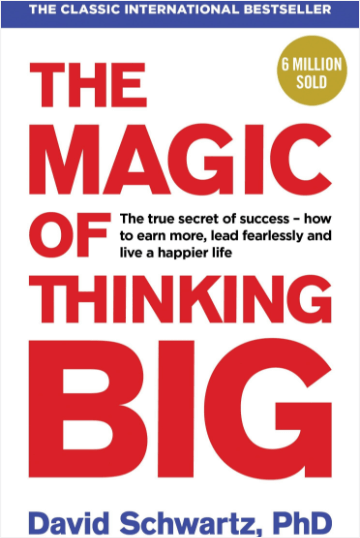
The Magic Of Thinking Big
David J. Schwartz
The Magic Of Thinking Big
This book gives you several starting points to develop and strengthen the most important trait of successful people: believing in yourself. It asserts that creative thinking is the driving force behind success. One can relate to the quotes and ideas which makes up this book. Definitely a read worth recommending!

The Secret
Rhonda Byrne
The Secret
It is a self-help book by Rhonda Byrne that explains how the law of attraction, which states that positive energy attracts positive things into your life, governs your thinking and actions, and how you can use the power of positive thinking to achieve anything you can imagine.
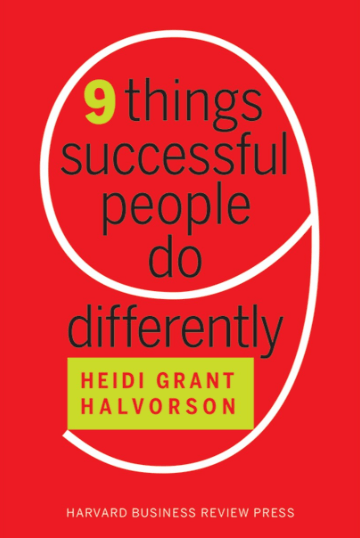
9 things successful people do differently
Heildi Grant Halvorson
9 things successful people do differently
With so many books around us, this one is short, spanning around 100 pages of advice from the author, a PhD of social psychology. The pages are filled with easy to digest advice that is meant to intrigue both the young and old. She has presented her ideas in an easy-to-understand way that used logic and anecdotes to illustrate a point and used various studies and empirical evidence to give credibility to her claims.
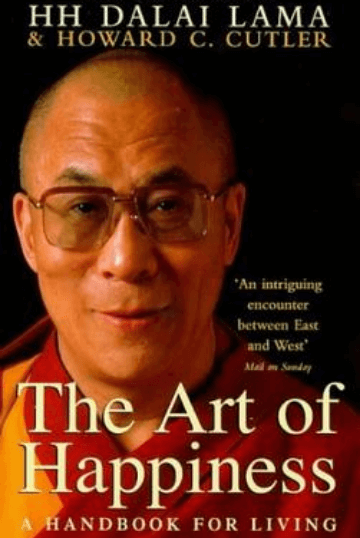
The Art of Happiness
Dalai Lama
The Art of Happiness
The book begins with the assertion that the very purpose of life is to seek happiness that remains despite life’s ups and downs. It discusses the true sources of happiness like the inner feeling of contentment, a sense of self-worth while illustrating the harmful effects of a comparing mind. May you find happiness after reading the book.
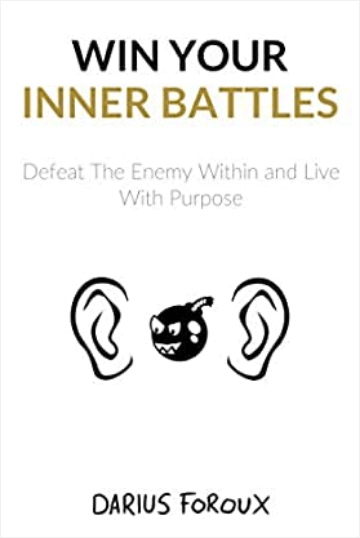
Win your inner battles
Darius Foroux
Win your inner battles
Whatever you want to do, you have to do it now. There could not be any circumstance that can hold you back. You are the one that’s holding yourself back. The book reflects the importance of winning your inner battles and living on your terms.
Podcasts

10% Happier with Dan Harris
10% Happier with Dan Harris
10% happier is a weekly podcast by Dan Harris. Dan Harris is the anchor of “Nightline” and author of the best-selling book “10% happier”. The podcasts are about the discussions between Dan Harris and the guests (celebrities, health experts, meditation pioneers and scientists). Each episode runs for about 60 minutes.
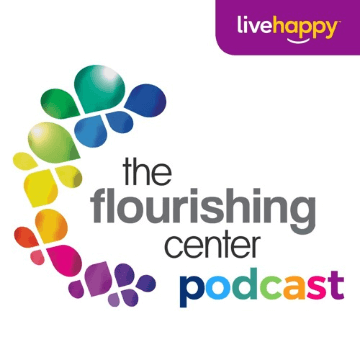
The Flourishing Center Podcast
The Flourishing Center Podcast
The flourishing centre podcasts highlight positive psychology research. Each podcast has 3 sections. The first section is about the recent research, the second section explains the ways and means to incorporate positive psychology into practice and the third talks about people who are already practising it.

Happier with Gretchen Rubin
Happier with Gretchen Rubin
Happier is a weekly podcast in which Gretchen Rubin (author of several books, including the blockbuster New York Times bestsellers, The Four Tendencies, Better Than Before, The Happiness Project, and Happier at Home) discusses good habits and happiness. Rubin and her sister Elizabeth Craft give listeners simple and effective tips for how they can bring a little bit more happiness into their lives every day. The duration of the podcast is about 30-40 minutes.

Happiness Matters
Happiness Matters
Happiness matters is a monthly podcast by Julia Seal and teach us how to be happy and successful at work, no matter what. Each episode gives mini-coaching sessions and is designed to help you take immediate action on the most impactful ways to increase your daily happiness at work while guiding you on a longer transformation coaching journey. Each episode lasts for about 20-30 minutes.

Adventure in Happiness
Adventure in Happiness
Adventure in happiness by Jessica Ortner takes you on a journey to explore strategies and ideas to help you feel your best. Jessica Ortner is a New York Times best-selling author and an ebullient guide to happiness and fulfilment through “tapping.” The duration of the episodes ranges from 30 to 60 minutes. The frequency of the podcasts is one or two episodes per quarter.

The Action for Happiness Project
The Action for Happiness Project
Action for Happiness makes us realize the importance of living life more compassionately and put the happiness of others at the centre of our lives. His Holiness The Dalai Lama is the patron of Action for Happiness. The podcast features interviews with luminaries mainly in the realm of mindfulness and meditation, such as Jon Kabat-Zinn, Daniel Goleman and many others. Each episode runs for about 40 minutes.

The Good Life Project
The Good Life Project
The good life project is about inspirational, intimate and disarmingly-unfiltered conversations about living a fully-engaged, fiercely-connected and meaning-drenched life. They host a twice-weekly interview show with thought leaders in the happiness, creativity and personal development spaces. Episodes include iconic world-shakers like Elizabeth Gilbert, Brene Brown, Sir Ken Robinson, Seth Godin and Gretchen Rubin. Each episode is about 60 minutes.

Invisibilia
Invisibilia
This podcast is produced and hosted by Alix Spiegel and Hanna Rosin and comes out with updates regularly. It examines forces such as ideas, beliefs, feelings, and emotions through narrative storytelling that incorporates science and aims to help people see their lives in a new light. The duration of episodes is about 40-60 minutes.

The Ziglar Show
The Ziglar Show
The Ziglar Show is professional development for those working for something bigger than themselves. Host Kevin Miller and renowned guests discuss business, sales, professional performance, faith, and the Zig Ziglar legacy of, “You can have everything in life you want if you will just help enough other people get what they want.” One episode is released every week and runs for about 60- 75 minutes.

Earn your Happy with Lori Harder
Earn your Happy with Lori Harder
Earn your happy gives all the inside secrets and tools you need to help you bust through your fears, connect to your soul and get focused and clear so you can elevate your life, business and relationships Each episode is designed to give you the tools, ideas, and inspiration to take action in your life. Lori Harder, founder of the Bliss Project, 3X time fitness world champion, fitness expert grabs your attention by bringing in an inspirational guest, a story or a “quickie” of motivation to give a boost in your life journey.
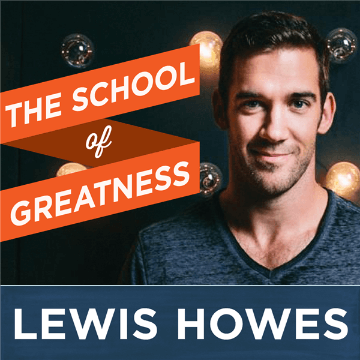
The School of Greatness with Lewis Howes
The School of Greatness with Lewis Howes
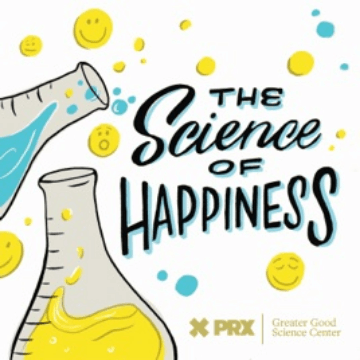
The Science of Happiness
The Science of Happiness
The podcast is hosted by award-winning professor Dacher Keltner and co-produced with Public Radio International. It aims to provide listeners with research, tips and inspiring stories. Guests such as Inside Out director Pete Docter, ABC News’s Dan Harris, and author Michael Pollan have been featured on the show to test practices like gratitude, mindfulness, meditation, self-compassion, and forgiveness in their daily lives, and then recap their experiences with well-being researchers. The duration of the episodes is about 20-30 minutes.

The Daily Boost
The Daily Boost
Daily boost host Scott Smith combines common-sense lessons, radio experience, and a love of words, wisdom, and wisecracks to create a different kind of daily motivation podcast. Each episode is released weekly with a duration of about 10-15 minutes.
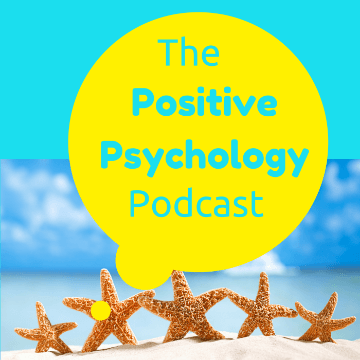
The Positive Psychology Podcast
The Positive Psychology Podcast
The host of the show Kristen Truempy gives us scientific insights into happiness and meaning while you are on the go. In her podcast, Kristen talks about the things in life that truly make people happy, such as the ability to appreciate beauty, gratitude, and positive emotions. She hosts guests to have discussions about happiness, including doctors, authors, and psychologists. She updates her podcast about once a month.

The Tim Ferris Show
The Tim Ferris Show
Tim Ferriss is a self-experimenter and bestselling author, best known for The 4-Hour Workweek, which has been translated into 40+ languages. Each episode deconstructs world-class performers from eclectic areas (investing, sports, business, art, etc.) to extract the tactics, tools, and routines you can use. This includes favourite books, morning routines, exercise habits, time-management tricks, and much more. Each episode lasts for about 60 minutes.
Movies

Life of Pi
8/10 IMDb | Drama , History
Life of Pi
After deciding to sell their zoo in India and move to Canada, Santosh and Gita Patel board a freighter with their sons and a few remaining animals. Tragedy strikes when a terrible storm sinks the ship, leaving the Patels’ teenage son Pi, as the only human survivor. However, Pi is not alone; a fearsome Bengal tiger has also found refuge aboard the lifeboat. As days turn into weeks and weeks drag into months, Pi and the tiger must learn to trust each other if both are to survive.

Rocket Singh
7.5/10 IMDb | Comedy , Drama
Rocket Singh
It is a warm, intimate coming-of-age story of a strong-minded girl who grew up to become one of the most powerful and influential black women in the country. It is filled with determination, love of family and many subtle and not-so-subtle lessons about being female, black, and black and female in America.
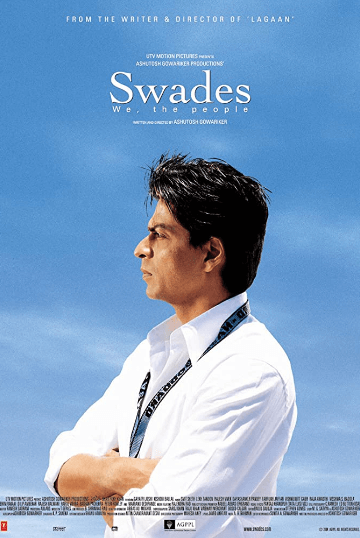
Swades
8.2/10 IMDb | Drama/Musical
Swades
A successful Indian scientist returns to an Indian village to take his nanny to America with him and in the process rediscovers his roots.

3 Idiots
8.4/10 IMDb | Comedy, Drama
3 Idiots
Raju and Farhan are on their way to find their long lost friend-Rancho. The search leads them to revisit college memories where their friend emphasised greatly on believing in themselves. It revolves around friendship and self-realisation.

ikigai
8.5/10 IMDb | Short, Comedy
ikigai
Ikigai is a term of Japanese origin that does not have an exact translation in any language, although it is attributed a very special meaning: “Having a reason to live”.

Dangal
8.4/10 IMDb | Sport, Action
Dangal
It is a biopic of Mahavir Singh Phogat. After failing to win gold for the country, he taught wrestling to his daughters Babita Kumari and Geeta Phogat despite receiving backlash from family and society. It is an inspiring and emotional journey that is meant to share what it takes to follow our heart and passion.

Bhaag Milkha Bhaag
8.2/10 IMDb | Sport, Drama
Bhaag Milkha Bhaag
The story of runner Milkha Singh, called ‘the Flying Sikh’ shows his loss in the 400-meter finals at the 1960 Olympics. It is an engrossing example of the sweeping, stirring biography.

Mary Kom
6.8/10 IMDb | Sport, Drama
Mary Kom
When Mary Kom encounters a renowned coach in a boxing gym, she shares her boxing aspirations with him and convinces him to teach her. Despite her father’s disapproval, she follows her passion and wins laurel for her country.
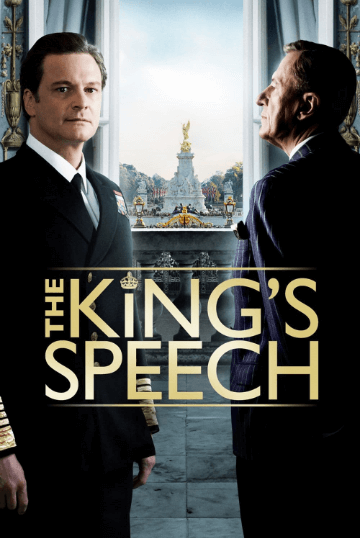
King's Speech
8/10 IMDb | Drama, Historical
King's Speech
England’s Prince Albert must ascend the throne as King George VI, but he has a speech impediment. Knowing that the country needs her husband to be able to communicate effectively, Elizabeth hires Lionel Logue, an Australian actor and speech therapist, to help him overcome his stammer. An extraordinary friendship develops between the two men, as Logue uses unconventional means to teach the monarch how to speak with confidence. It is a charming, personal period drama.

Moneyball
7.6/10 IMDb | Sport, Drama
Moneyball
Based on Michael Lewis’ nonfiction bestseller the story deals with Oakland A’s general manager Billy Beane, who assembled a contending baseball club on a shoestring budget by employing a sophisticated computer-based analysis to draft players. This movie is a great depiction of the overall change in management that occurred during the turn of the millennium.

Wake Up Sid
7.6/10 IMDb | Romance, Comedy
Wake Up Sid
Sid Mehra is a young man living in Mumbai who benefits from the indulgence of his parents. After graduating from university, he makes a stab at working in his father’s business but lasts only a week. He then meets Aisha, an aspiring writer from Calcutta. Sid helps her get settled in the city and after a family dispute moves with her. For the first time in his entire life, he realizes that things aren’t always given. At Aisha’s insistence, he decides to learn basic life skills and grow up.

Suits
8.5/10 IMDb | Drama, TV-series
Suits
In Suits, one of Manhattan’s top corporate lawyers sets out to recruit a new hotshot associate and hires the only guy that impresses him. The job is bagged by a talented young college dropout. Though he isn’t actually a lawyer, this legal prodigy has the book smarts of a Harvard law grad and the street smarts of a hustler. However, in order to serve justice and save their jobs, both these unconventional thinkers must continue the charade.

The Social Network
8/10 IMDb | War, Drama
The Social Network
In 2003, Harvard undergrad and computer genius Mark Zuckerberg begins work on a new concept that eventually turns into the global social network known as Facebook. Six years later, he is one of the youngest billionaires ever, but Zuckerberg finds that his unprecedented success leads to both personal and legal complications when he ends up on the receiving end of two lawsuits, one involving his former friend.
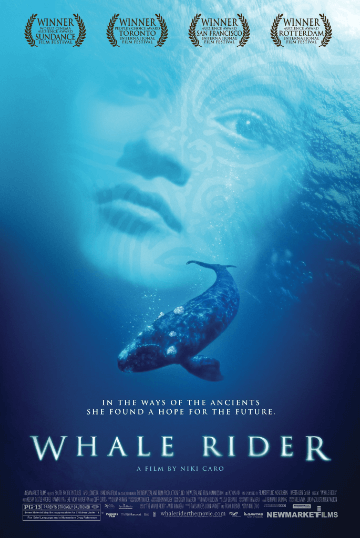
Whale Rider
7.6/10 IMDb | Family, Drama
Whale Rider
Whale Rider can accurately be called an art film, but it’s also one that will appeal to mainstream audiences because it has a strong story that deals with universal themes like family, tradition, childhood and rebellion. The story is unique and unpredictable but also comfortingly familiar. The story is of the love, rejection and triumph of a young Maori girl who fights to fulfil a destiny her grandfather refuses to recognize. Every bit is as bold and uplifting as its title suggests.

Mulan
7.6/10 IMDb | Animation, Musical
Mulan
Fearful that her ailing father will be drafted into the Chinese military, Mulan takes his spot- though, as a girl living under a patriarchal regime, she is technically unqualified to serve. She cleverly impersonates a man and goes off to train with fellow recruits. Accompanied by her dragon, Mushu, she uses her smarts to help ward off a Hun invasion, falling in love with a dashing captain along the way.

Brave
7.1/10 IMDb | Animation, fantasy
Brave
Merida, the impetuous but courageous daughter of Scottish King Fergus and Queen Elinor is a skilled archer who wants to carve out her own path in life. Her defiance of an age-old tradition angers the Highland lords and leads to chaos in the kingdom. Merida seeks help from an eccentric witch, who grants her an ill-fated wish. Now, Merida must discover the true meaning of courage and undo a beastly curse before it’s too late.

Dor
7.9/10 IMDb | Drama
Dor
It is an interesting movie about two young women, with different backgrounds, miles apart, and strangers to each other who are linked by tragedy but become instant friends. Their newfound friendship is tested as one holds the fate of the other’s husband in her hands.

Slumdog Millionaire
8/10 IMDb | Drama, Romance
Slumdog Millionaire
As 18-year-old Jamal Malik answers questions on the Indian version of “Who Wants to Be a Millionaire,” flashbacks show how he got there. Part of a stable of young thieves after their mother dies, Jamal and his brother, Salim, survive on the streets of Mumbai. Salim finds the life of crime agreeable, but Jamal scrapes by with small jobs until landing a spot on the game show.

He Named Me Malala
6.9/10 IMDb | Documentary
He Named Me Malala
It is a documentary about Malala Yousafzai, the remarkable young lady from Pakistan, whom the Taliban tried to assassinate because she stood up for the right to an education for young girls. She emerges as a leading advocate for children’s rights and the youngest-ever Nobel Peace Prize Laureate.

Lincoln
7.3/10 IMDb | Drama/History
Lincoln
With the nation embroiled in still another year with the high death count of the Civil War, President Abraham Lincoln brings the full measure of his passion, humanity and political skill to what would become his defining legacy: to end the war and permanently abolish slavery through the 13th Amendment. Having great courage, acumen and moral fortitude, Lincoln pushes forward to compel the nation, and those in government who oppose him, to aim toward a greater good for all mankind
Courses

Positive Psychology
Positive Psychology
This course will introduce the learners to these fundamental aspects of PP, apart from highlighting some of the core PP concepts including – happiness, flow, mindfulness, optimism, resilience, emotional intelligence, spirituality and self-related concepts (self-efficacy, self-esteem, ideal-self and real-self, self-regulation) etc. This course will facilitate one’s understanding of the positive aspects of human behaviour.

Crafting Realities: Work, Happiness, and Meaning
Crafting Realities: Work, Happiness, and Meaning
https://www.edx.org/course/introduction-to-social-psychology

Introduction to Social Psychology
Introduction to Social Psychology
https://www.edx.org/course/empathy-and-emotional-intelligence-at-work

Empathy and Emotional Intelligence at Work
Empathy and Emotional Intelligence at Work
https://www.edx.org/course/empathy-and-emotional-intelligence-at-work

Foundations of Positive Psychology Specialization
Foundations of Positive Psychology Specialization
Positive Psychology: Well-being for life. Master strategies and tools that enable individuals and organizations to thrive.

Finding purpose and meaning in life
Finding purpose and meaning in life
1. Understand that having a strong purpose in life is an essential element of human well-being
2. Know how self-transcending purpose positively affects the well-being
3. Be able to create a purpose for your life (don’t be intimidated, this is different from creating “the purpose” for your life)
4. Apply personal approaches and skills to self-change and become and stay connected to your purpose every day
https://www.coursera.org/learn/finding-purpose-and-meaning-in-life#about

CBT Cognitive Behavior Therapy Life Coaching Certification
CBT Cognitive Behavior Therapy Life Coaching Certification
Key learnings:
How to master communication with yourself Use the material for professional use or as a personal reflective tool Eliminate your self-sabotaging behaviours How to leverage the science of the mind Succeed in the ‘helping industry’ by teaching others to gain control over their thoughts and emotions.
A nurturing community of over 5,000 active students from 172 countries Experience psychological peace Fully-accredited for 16 Professional Development CPD/CE credit hours Remove barriers and emotional blocks Recondition your mind for happiness Help people who are suffering or falling behind Free customizable coaching workbook and handouts
https://www.udemy.com/course/cbt-cognitive-behavioral-coach-practitioner-certification/

Be Happier with Positive Psychology
Be Happier with Positive Psychology
The surprising link between wealth and happiness. The secret reason why materialism undermines well-being. How a simple two-minute exercise can create lasting changes in your happiness. How to pursue relationships that will give you the most fulfilling life possible. How you can change your life by spending money on the right things (and stop spending it on the wrong things which you almost definitely are)
https://www.udemy.com/course/happier-positive-psychology-happiness/

A Life of happiness and fulfilment
A Life of happiness and fulfilment



